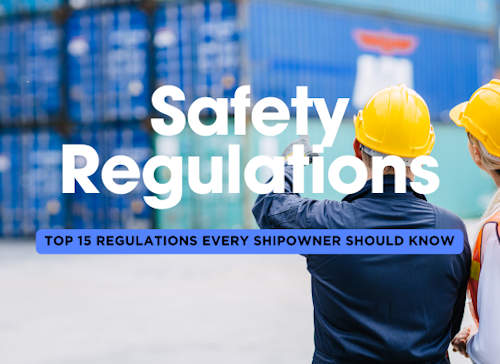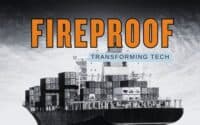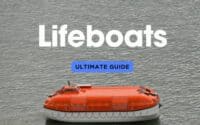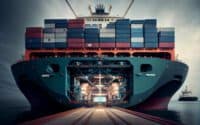Top 15 Global Maritime Safety Regulations Every Ship Owner Should Know

The maritime industry is one of the most heavily regulated sectors globally, with safety at its core. Shipowners must navigate a complex framework of international conventions and regulations to ensure the safety of their vessels, crew, and cargo, as well as to protect the environment. Understanding these regulations is not just about compliance—it's about operating efficiently, minimizing risks, and avoiding costly fines or detentions. Below are 15 essential global maritime safety regulations that every shipowner should be aware of, starting with the most impactful ones.

1. International Convention for the Safety of Life at Sea (SOLAS) 🌊
Overview: The SOLAS convention is often regarded as the most important international treaty concerning maritime safety. Established in response to the Titanic disaster in 1914, SOLAS sets the minimum safety standards for the construction, equipment, and operation of ships. It mandates that ships are designed and equipped to handle emergencies such as fires, flooding, and abandonment.
Key Requirements:
- Fire Safety Measures: Ships must be fitted with fire detection systems and fire extinguishing equipment.
- Life-Saving Appliances: Adequate life jackets, life rafts, and other lifesaving equipment must be available for all crew and passengers.
- Navigation Systems: Modern ships must be equipped with Global Maritime Distress and Safety Systems (GMDSS) for emergency communication.
Why It’s Critical: Non-compliance with SOLAS can lead to ship detention at ports, heavy fines, and reputational damage. Adhering to these standards ensures that your vessel is prepared for emergencies, protecting both the crew and the ship.
Who It Applies To:
- Vessel Types: All merchant vessels engaged in international voyages.
- Compliance Tips: Regularly update equipment and systems to meet the latest SOLAS amendments. Schedule annual audits to ensure everything is in working order.
2. International Convention for the Prevention of Pollution from Ships (MARPOL) ♻️
Overview: The MARPOL convention, adopted in 1973 and updated in 1978, aims to minimize pollution from ships. It addresses pollution from oil spills, chemicals, sewage, and garbage, making it a crucial regulation for both environmental and operational reasons.
Key Requirements:
- Oil Pollution Prevention: Vessels must have Oil Discharge Monitoring Equipment (ODME) to ensure oil discharges are within legal limits.
- Sewage and Garbage Management: Ships must have waste management systems to process sewage and garbage in an environmentally friendly way.
- Air Pollution Controls: MARPOL Annex VI focuses on controlling emissions of sulfur oxides (SOx) and nitrogen oxides (NOx), mandating the use of cleaner fuels.
Why It’s Critical: Non-compliance with MARPOL can result in significant fines, legal action, and potential bans from entering certain ports. More importantly, adhering to these regulations helps protect the world’s oceans and marine ecosystems, which are vital for both environmental sustainability and future maritime operations.
Who It Applies To:
- Vessel Types: All ships operating internationally.
- Compliance Strategies: Install Exhaust Gas Cleaning Systems (scrubbers), use low-sulfur fuels, and ensure all waste is properly managed and recorded in oil record books.
3. International Convention on Standards of Training, Certification, and Watchkeeping for Seafarers (STCW) 🎓
Overview: The STCW convention establishes minimum standards for training, certification, and watchkeeping for seafarers on internationally operating ships. It ensures that all crew members are properly trained and competent for their respective roles, which reduces human error—a leading cause of maritime accidents.
Key Requirements:
- Training: Crew members must receive training on safety, first aid, fire-fighting, and survival techniques.
- Certification: Officers and seafarers must hold valid certifications for their roles, such as certifications for navigation, engineering, or radio operations.
- Watchkeeping: Clear rules for rest and work hours must be followed to prevent fatigue, ensuring watchkeepers are alert and able to make sound decisions.
Why It’s Critical: STCW compliance is essential for maintaining a well-trained and rested crew, minimizing accidents and improving the overall safety of maritime operations. Non-compliance can lead to ship detentions, costly delays, and safety incidents onboard.
Who It Applies To:
- Vessel Types: All ships engaged in international voyages, including cargo, passenger, and specialized vessels.
- Best Practices for Compliance: Shipowners should conduct regular crew training sessions and ensure that all certifications are up-to-date. Implement digital systems to track crew working hours and ensure compliance with rest period regulations.
4. International Safety Management Code (ISM Code) 📋
Overview: The ISM Code requires shipping companies to establish a safety management system (SMS) to ensure safe practices, prevent pollution, and create a framework for continual safety improvements. It was introduced as part of the SOLAS convention in response to several maritime accidents that were attributed to human error and organizational issues.
Key Requirements:
- Safety Management System (SMS): Shipowners and operators must develop, implement, and maintain a documented SMS. This system should address all operational safety measures and risk assessments.
- Designated Person Ashore (DPA): Companies must appoint a DPA to act as a link between the ship and the shore office, ensuring that the SMS is being followed.
- Regular Audits: The SMS is subject to internal and external audits to ensure compliance with the ISM Code.
Why It’s Critical: The ISM Code creates a proactive safety culture by integrating risk management and safety procedures into day-to-day operations. Non-compliance could lead to vessel detentions, significant fines, and increased insurance premiums.
Who It Applies To:
- Vessel Types: All ships covered under SOLAS, including cargo ships, tankers, and passenger vessels.
- Implementation Strategies: Conduct regular safety drills, ensure that your SMS is up-to-date, and audit both crew procedures and equipment on a consistent basis. Foster a safety culture where crew members feel comfortable reporting potential hazards.
5. International Ship and Port Facility Security Code (ISPS Code) 🔐
Overview: The ISPS Code was developed in response to the growing threats of terrorism, piracy, and security breaches in the maritime industry. It establishes a standardized security regime for ships and port facilities, requiring measures to prevent and respond to security incidents. The code is part of the SOLAS convention.
Key Requirements:
- Ship Security Plans (SSP): Each ship must have an approved SSP that outlines specific security measures to be implemented at various threat levels.
- Ship Security Officer (SSO): Every vessel must appoint a certified SSO responsible for implementing and maintaining the ship’s security plan.
- Port Facility Security Officer (PFSO): Ports are required to have a PFSO to coordinate security between the ship and the port facility.
Why It’s Critical: Non-compliance with the ISPS Code can result in a ship being denied entry into ports, delayed, or detained. Moreover, security breaches can lead to severe consequences, including cargo theft, piracy, or terrorism-related incidents.
Who It Applies To:
- Vessel Types: All SOLAS-regulated vessels and port facilities engaging in international trade.
- Compliance Tips: Conduct regular security drills, keep the crew updated on evolving threats, and maintain communication with port facilities to ensure security coordination. Also, invest in security technology like access control systems and surveillance equipment.
6. Convention on the International Regulations for Preventing Collisions at Sea (COLREGs) 🚢
Overview: The COLREGs, also known as the “Rules of the Road,” establish internationally recognized navigation rules to prevent collisions between vessels at sea. The regulations cover everything from the conduct of ships in various situations to navigation lights and sound signals.
Key Requirements:
- Steering and Sailing Rules: These rules define the actions vessels must take to avoid collisions, including rights of way in crossing, overtaking, and head-on situations.
- Navigation Lights and Signals: Vessels must be equipped with appropriate lights and sound signals that indicate their type, status, and direction, especially during night or restricted visibility operations.
- Responsibilities of Captains: Masters and officers must be familiar with the rules and ensure compliance by all crew members involved in navigation.
Why It’s Critical: Adhering to COLREGs minimizes the risk of ship collisions, which are not only dangerous but can also result in significant financial losses, legal liabilities, and environmental damage. Violations can lead to penalties and being found at fault in legal disputes following a collision.
Who It Applies To:
- Vessel Types: All seafaring vessels, regardless of size or purpose, including cargo ships, fishing vessels, and recreational boats.
- Compliance Strategies: Ensure that all officers are fully trained in COLREGs, maintain functioning navigation lights and sound equipment, and update systems regularly to reflect technological advancements.
10. Ballast Water Management Convention (BWM Convention) 🌍
Overview: The Ballast Water Management Convention was adopted to prevent the spread of harmful aquatic organisms from one region to another, through the transfer of ballast water from ships. Ballast water, when taken up in one ecosystem and released in another, can introduce invasive species that threaten local marine environments, human health, and economic activity. The BWM Convention requires ships to manage their ballast water and sediments to limit these risks.
Key Requirements:
- Ballast Water Treatment Systems: Ships are required to install and operate ballast water treatment systems that neutralize or remove harmful organisms from ballast water before discharge.
- Ballast Water Management Plan: Vessels must maintain a management plan that outlines procedures for safe ballast water exchange and treatment, including record-keeping of all ballast water operations.
- Compliance Monitoring: Ships may be inspected to ensure compliance, and port authorities may sample ballast water to verify adherence to standards.
Why It’s Critical: Non-compliance with the BWM Convention can lead to invasive species outbreaks, which have severe environmental and economic consequences, including penalties and detention at ports. Adopting effective ballast water management practices is critical to maintaining ecosystem health and preventing costly damage.
Who It Applies To:
- Vessel Types: All ships that use ballast water and engage in international voyages.
- Compliance Strategies: Install approved ballast water treatment systems, conduct regular ballast water exchanges as per the convention, and keep meticulous records of all ballast water operations to show compliance during inspections.
11. Polar Code ❄️
Overview: The Polar Code establishes mandatory safety and environmental protection measures for ships operating in the challenging Arctic and Antarctic regions. Given the extreme conditions in polar waters—ice hazards, limited infrastructure, and environmental sensitivities—the code covers both safety measures for the crew and ship, as well as environmental regulations to protect these fragile ecosystems.
Key Requirements:
- Ice Navigation Training: Crew members operating in polar waters must undergo specialized training in navigating icy conditions, understanding ice charts, and dealing with freezing temperatures.
- Ship Design and Equipment: Ships operating in polar regions must meet specific construction standards to withstand ice pressure and ensure crew safety, such as reinforced hulls and equipment designed for extreme cold.
- Environmental Protection: Strict regulations are in place to prevent pollution, including prohibiting the discharge of oil, chemicals, or untreated sewage in polar waters.
Why It’s Critical: Polar regions are particularly vulnerable to environmental damage, and accidents in these remote areas can lead to catastrophic consequences. The Polar Code helps ensure that ships can safely navigate these waters while minimizing environmental harm. Non-compliance can lead to severe penalties and restrictions on polar operations.
Who It Applies To:
- Vessel Types: Ships operating in Arctic and Antarctic waters, including cargo vessels, passenger ships, and research vessels.
- Compliance Tips: Ensure all crew members receive polar navigation training, upgrade ship designs to meet ice-class standards, and follow strict waste management protocols to protect these sensitive environments.
12. Hong Kong International Convention for the Safe and Environmentally Sound Recycling of Ships (Hong Kong Convention)
Overview: The Hong Kong Convention aims to ensure that ships, when being recycled at the end of their operational lives, do not pose unnecessary risks to human health, safety, and the environment. Ship recycling, especially in developing countries, often involves hazardous working conditions and environmental pollution. This convention sets out the standards to regulate the safe dismantling and recycling of ships.
Key Requirements:
- Inventory of Hazardous Materials: Ships must carry an inventory of hazardous materials (IHM) throughout their operational life, detailing any materials onboard that could pose health or environmental risks during recycling.
- Certified Recycling Facilities: Ships must be sent to approved recycling facilities that meet international standards for safety and environmental protection.
- Recycling Plans: Before recycling begins, a Ship Recycling Plan must be developed to ensure the safe and responsible disposal of hazardous materials, and that the ship's structure can be safely dismantled.
13. Code of Safe Practice for Cargo Stowage and Securing (CSS Code) 📦
Overview: The CSS Code provides guidelines for the safe stowage and securing of cargo on ships to prevent accidents during transit. Improperly secured cargo can shift during rough seas, leading to instability, damage to the ship, and even cargo loss overboard. The code covers all types of cargo, from containers to bulk cargo and vehicles, and is especially crucial for RoRo (Roll-on/Roll-off) ships.
Key Requirements:
- Proper Securing of Cargo: All cargo must be properly secured using approved lashing equipment, ensuring it remains stable even in adverse weather or sea conditions.
- Stowage Plans: Ships must develop detailed stowage plans that take into account the type of cargo, weight distribution, and vessel stability to ensure safe transit.
- Regular Inspections: Cargo securing devices and equipment must be regularly inspected and maintained to ensure their effectiveness during the entire voyage.
Why It’s Critical: Cargo shifts can lead to significant safety hazards, including capsizing or loss of cargo at sea, which not only endangers the crew but also results in financial losses. Non-compliance can lead to vessel detentions, costly cargo damage claims, and potential environmental hazards from lost goods.
Who It Applies To:
- Vessel Types: All ships carrying cargo, including RoRo vessels, bulk carriers, and container ships.
- Compliance Tips: Conduct regular training for crew members on proper stowage and securing techniques, implement detailed cargo stowage plans, and ensure all securing equipment is well-maintained and inspected regularly.
14. International Convention on Salvage ⚓
Overview: The International Convention on Salvage governs the rights and responsibilities of salvors and shipowners during salvage operations. Salvage is the process of rescuing a ship, its cargo, or both from peril at sea, such as grounding or sinking. The convention outlines fair compensation for salvors who perform successful rescues while ensuring that operations are carried out in a way that minimizes environmental damage.
Key Requirements:
- Salvage Rights: Salvors are entitled to a reward for saving a ship or its cargo, with additional rewards if they successfully prevent environmental harm during the salvage.
- Environmental Considerations: Salvors are required to perform operations in a manner that prevents or minimizes environmental damage, particularly from oil spills or hazardous materials.
- Master's Responsibility: The ship’s master retains authority during salvage operations, although the salvor is responsible for ensuring that the operation is conducted safely and effectively.
Why It’s Critical: Salvage operations often occur in life-or-death situations where prompt action is necessary to save the ship and its cargo. The convention ensures that salvors are fairly compensated, incentivizing professional and efficient operations that prioritize both the ship and the environment.
Who It Applies To:
- Vessel Types: All ships, including those carrying hazardous or valuable cargo, particularly in cases of grounding, sinking, or other emergencies at sea.
- Compliance Strategies: Shipowners should ensure that their crew is familiar with the basic provisions of the Salvage Convention and be prepared to work with professional salvage companies in emergencies. Maintaining insurance coverage for potential salvage operations is also advisable.
15. International Aeronautical and Maritime Search and Rescue Convention (SAR Convention) 🚁
Overview: The SAR Convention sets out the framework for international cooperation in search and rescue operations at sea. It establishes standardized procedures for maritime and aeronautical search and rescue missions, ensuring that any vessel in distress receives assistance, regardless of its location. Coastal nations are required to provide search and rescue services within their designated zones.
Key Requirements:
- Search and Rescue Coordination Centers (RCCs): Coastal states must establish RCCs to coordinate and manage search and rescue efforts within their areas of responsibility.
- Standardized Procedures: SAR operations must follow standardized communication and coordination protocols, ensuring that ships, aircraft, and rescue teams can work together efficiently during an emergency.
- Vessel Obligations: Ships are required to provide assistance to any vessel or person in distress, as long as it does not endanger the assisting vessel or its crew.
Why It’s Critical: Search and rescue operations are vital in saving lives at sea, particularly in cases of shipwreck, man overboard situations, or other emergencies. By following SAR protocols, coastal nations and ship operators can provide a coordinated response that maximizes the chances of successful rescues.
Who It Applies To:
- Vessel Types: All ships operating in international waters, as well as coastal states responsible for search and rescue within their territories.
- Compliance Tips: Ensure your crew is trained in SAR procedures, maintain proper communication equipment onboard, and regularly update your search and rescue contacts to ensure timely coordination during emergencies.
Table Summary
| ShipUniverse: Top 15 Global Maritime Safety Regulations Every Ship Owner Should Know | |||
| Regulation | Summary | Who It Applies To | Link |
| SOLAS (International Convention for the Safety of Life at Sea) | The most important maritime safety convention, SOLAS sets the minimum safety standards for ship construction, equipment, and operations to handle emergencies like fires, flooding, and abandonment. | All merchant vessels engaged in international voyages. | SOLAS Overview |
| MARPOL (International Convention for the Prevention of Pollution from Ships) | MARPOL focuses on preventing pollution of the marine environment by ships through oil, chemicals, sewage, and garbage, with strict regulations on emissions and waste management. | All ships operating internationally. | MARPOL Overview |
| STCW (International Convention on Standards of Training, Certification, and Watchkeeping for Seafarers) | STCW ensures that seafarers are properly trained and certified for their roles, covering watchkeeping duties and setting standards for crew rest to reduce fatigue and improve safety. | All ships engaged in international voyages. | STCW Overview |
| ISM Code (International Safety Management Code) | The ISM Code mandates that shipping companies have a safety management system (SMS) to ensure safe practices, environmental protection, and continual safety improvements. | All ships covered by SOLAS, including cargo ships and tankers. | ISM Code Overview |
| ISPS Code (International Ship and Port Facility Security Code) | The ISPS Code sets out security measures for ships and port facilities to prevent terrorism, piracy, and security breaches. Ships must develop a Ship Security Plan (SSP) and appoint a Ship Security Officer (SSO). | All SOLAS-regulated vessels and port facilities engaged in international trade. | ISPS Code Overview |
| COLREGs (Convention on the International Regulations for Preventing Collisions at Sea) | The COLREGs, or "Rules of the Road," outline navigation rules to prevent collisions at sea, covering right-of-way, navigation lights, and sound signals. | All seafaring vessels, including cargo ships, fishing vessels, and recreational boats. | COLREGs Overview |
| MLC (Maritime Labour Convention) | The MLC sets minimum standards for seafarers’ working and living conditions, including wages, work hours, and onboard accommodation, ensuring fair treatment and safety for crews. | All commercial vessels engaged in international voyages with seafarers onboard. | MLC Overview |
| Load Lines Convention | The Load Lines Convention regulates the minimum freeboard (distance between waterline and deck) to ensure ship stability and safety, particularly in rough seas. | All merchant vessels engaging in international voyages. | Load Lines Overview |
| IMDG Code (International Maritime Dangerous Goods Code) | The IMDG Code governs the safe transport of dangerous goods by sea, ensuring proper classification, packaging, labeling, and documentation to avoid accidents. | All vessels carrying hazardous materials in international waters. | IMDG Code Overview |
| BWM Convention (Ballast Water Management Convention) | This convention aims to prevent the spread of invasive species through ballast water by requiring ships to treat and manage ballast water before discharge. | All ships that use ballast water and engage in international voyages. | BWM Convention Overview |
| Polar Code | The Polar Code sets safety and environmental regulations for ships operating in Arctic and Antarctic waters, addressing ice navigation, ship design, and environmental protection. | Ships operating in polar waters, including cargo vessels, passenger ships, and research vessels. | Polar Code Overview |
| Hong Kong Convention (Ship Recycling) | This convention ensures ships are recycled safely and responsibly, protecting workers and the environment from hazardous materials during the dismantling process. | All ships over 500 gross tonnage engaged in international trade. | Hong Kong Convention Overview |
| CSS Code (Code of Safe Practice for Cargo Stowage and Securing) | The CSS Code provides guidelines for securing cargo to prevent shifts during transit, ensuring vessel stability and reducing the risk of accidents at sea. | All ships carrying cargo, including RoRo vessels, bulk carriers, and container ships. | CSS Code Overview |
| Salvage Convention | The Salvage Convention governs the rights and responsibilities of salvors during operations to rescue ships and cargo, ensuring fair compensation and minimizing environmental damage. | All ships, particularly those carrying hazardous or valuable cargo, in emergencies at sea. | Salvage Convention Overview |
| SAR Convention (Search and Rescue) | The SAR Convention establishes international cooperation for search and rescue operations at sea, requiring countries to maintain rescue coordination centers and assist vessels in distress. | All ships operating in international waters, and coastal states responsible for SAR services. | SAR Convention Overview |

Do you have a Maritime Product or Service that may be of interest to Shipowners? Tell us about it here!
Do you have feedback or insights? Please reach out to editor @ shipuniverse.com



